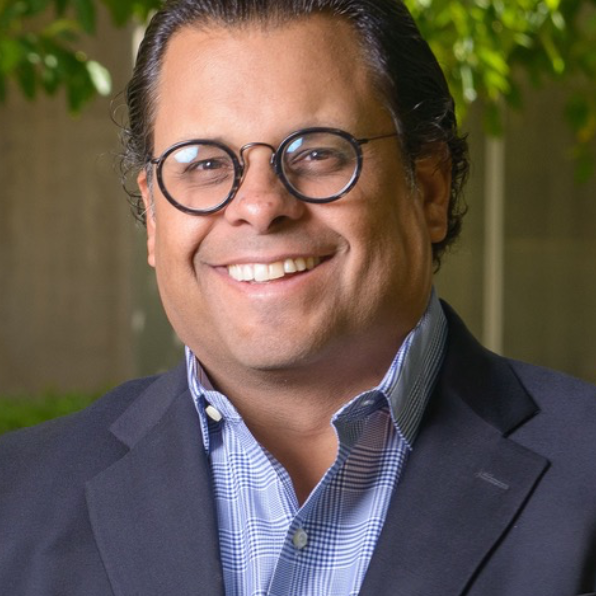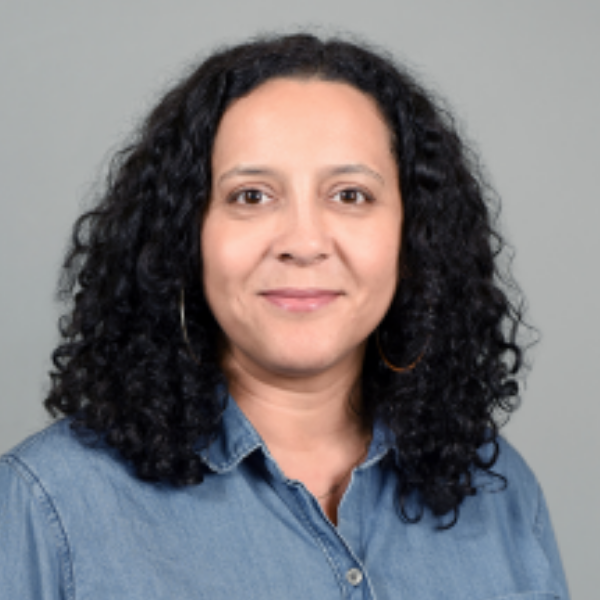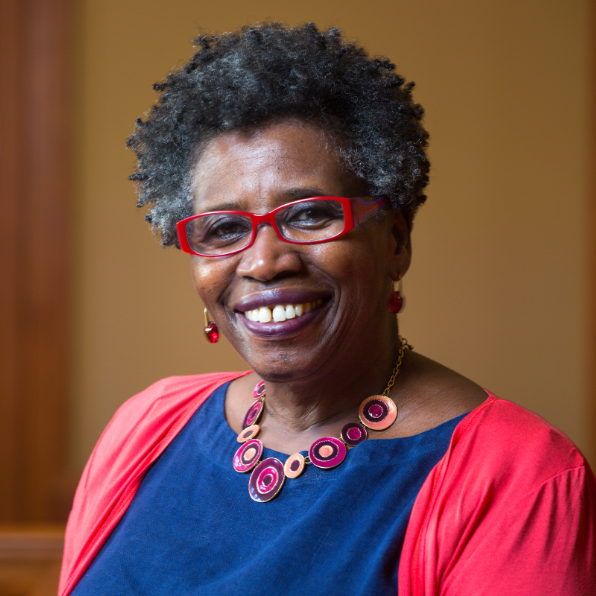ASU experts break down systemic racism

After the protests and the reading and the conversations about racism, how can people take action?
That desire for change was reflected by the more than 1,000 people in the Arizona State University community who attended a virtual panel discussion on Thursday titled, “Racism is Not New: Tackling Systemic Racism in 2020,” sponsored by the ASU Committee for Campus Inclusion and moderated by Cassandra Aska, deputy vice president and dean of students for the Tempe campus.
Three ASU experts discussed the current state of anti-racist discernment and what needs to come next. Here are some of the wide range of points they covered.
Why is there a focus on monuments?
Bryan Brayboy, President’s Professor and director of the Center for Indian Education: Monuments obfuscate things and one of them is violence. In almost every case, the monuments are erected to people who either engaged in violence or oversaw violence. What we’re doing is honoring violence.
Bryan Brayboy
And what the monuments do is create another kind of violence — rhetorical and discursive violence. They’re a constant reminder of a moment in the past when people were enslaved and people were willing to go against their country. And we erect monuments to traitors.
They also obfuscate history. Myths become truths and the power is in that the more it’s retold, the more it becomes truth.
It’s Confederate monuments but also monuments to Christopher Columbus, who came to the New World and committed unbelievable acts of violence, especially sexual violence against young girls.
The pulling down of monuments is a response to the act of obfuscating violence, and to shine to a light on it. People talk about “erasing history” but the people who are pulling them down say that we need to reframe history.
Stanlie James, vice provost of inclusion and community engagement in the Office of the University Provost and professor of African and African American studies in the School of Social Transformation: One thing about monuments is that people think they were put up following the Civil War. That’s not accurate. Sometimes it was decades before they were put up.
There was a company putting up monuments to soldiers in small towns around the United States. They made the same soldier over and over, and depending on what city it was, they put on the appropriate soldier attire. If a Northern city bought a soldier monument, they put a Union outfit on the monument. If a Confederate city did, they put a Confederate uniform on him.
It was exactly the same statue.
That company made a lot of money, which goes back to the notion that this is a capitalist society and they used capitalism to enrich themselves.
When they talk about “our heritage,” I’m thinking, “really?” The heritage is capitalism, not patriotism.
What’s up with calling white women “Karen"?
Mako Ward, clinical assistant professor and faculty head of African and African American Studies: There has been a lot of discussion about who is a “Karen.” The definition from the queer Afro-Latina (activist) Alicia Sanchez Gill is that Karen is a term created specifically by Black women to talk about white women’s interpersonal and state violence against us.
She’s characterized as a suburban white woman who calls the police on African Americans in public spaces, from parks to grocery stores to parking lots. She’s offensive, rude and entitled.
Mako Ward
There’s been some interesting quick studies on what the origins are. Some folks date it back to a 2005 Dane Cook comedy sketch. Some folks say it’s from films from the 1990s, like “Goodfellas” and “Mean Girls.”
What’s probably more accurate in how we use it today is a 2017 Reddit conversation where folks began to use the term Karen to call out this kind of rude entitlement that we’ve seen.
For individuals from marginalized communities who lack access to power to demand structuralized change, all we have is our voice. Social media offers that outlet. To name white privilege in those spaces, that how "Karen" functions. They use comedy and satire as a means of laughing to keep from crying.
Racism is not new, so why the sense of urgency?
James: We are in a sense of urgency because of the COVID pandemic, which is deeply interrelated with the pandemic of racism.
With COVID, a lot of us are working remotely from home and we’re looking compulsively at TV and listening to the news, so we’re at a time where even though we’re working, we also have the time to pay attention more carefully to what is happening.
So when (the stories of) George Floyd and others come on, we have the time to explore it in more detail than we might if we were running back and forth to work and doing all the other things we do in the time of being normal.
We’re seeing it in real time in a way we didn’t get to see it before, when it might take months or years before you heard about some of what I call modern-day lynchings.
But we’re seeing it now and it adds to our sense of urgency about how much needs to be done.
I have seen these things come and go. I have seen us be very concerned about civil rights, for example, and the different kinds of civil rights, Black civil rights, American Indian Movement, women’s rights, LGBQT.
Stanlie James
What we’re seeing today is a little different. It’s more complex. It’s more than asking for civil rights. It’s demanding human rights.
Now, racism gets more and more sophisticated as we go along. What we have learned from history is that we can address these things but white supremacist racism doesn’t sit still. It continues to morph and become more sophisticated. Which means the way we address it has to become more complex and sophisticated.
What I feel is — I’m tired. What I’m happy about is we have young people who are not tired, who are enraged, dedicated and absolutely determined to make a new normal.
They are not interested in returning to what was before the pandemic.
Brayboy: The urgency is for me a bit of a double-edged sword.
There is a need to act quickly and in the moment. The fact that so many institutions and individuals are stepping up really does get at that. There’s a call from our (ASU) president and senior administration to bring ideas forward, which I completely support.
I also think it’s important for us to be a bit cautious. ASU was founded in 1885, 135 years ago. We have these structural and institutional components from when the Tempe Normal School was founded, and I worry that people will think, “Well, we can just fix this in a year or a conversation or two.”
Let’s be cautious that 135 years of structural racism baked into the place we live and work isn’t going to be resolved in 135 days and likely not in 135 weeks.
Folks want immediate change and there are ways to do that but we need to plan for the middle term and the long term.
How do we move from acts of social unrest to action?
Ward: This is the most important question that every member of the ASU community needs to reflect on — how they hold themselves accountable and how we hold our institution accountable to our mission and vision and charter.
In many ways it pains me to know that another generation of students are exerting their energy on struggling and protesting the structure of power within a primarily white institution instead of having the absolute freedom and joy to learn and grow and focus on academic studies.
We’re not living up to our charter as an institution. Maybe we’re living up to it demographically, but in terms of how we operationalize what it means to succeed, we’re far from our aspirations.
To our students, you’re at a university to deepen your understanding of the world and develop a self-reflective set of techniques to exist in this diverse world. So it’s vital that every student has the opportunity to learn about the nature of society and the nuances that exist within them and more importantly, the power and history of oppression.
I would argue that all students need to take courses in ethnic and cultural studies.
The administration is a diverse group who exists in a massive ecosystem. I want to urge you to move beyond statements. Social justice organizations around the country have done all the work of outlining strategies for inclusion and investment in revising systems.
It’s hiring practices, promotion and tenure guidelines, issues of salary compression because we know that women of color are overburdened. It’s reforming campus law enforcement and access to mental health.
All of these points have been made by various groups at various times in our institution’s history. So we’re at a point where we activate these recommendations.
It’s important for white administrators to take the initiative to do something radical in their own leadership capacities.
Brayboy: What’s really important is for us to find a way that this is everyone’s responsibility and there is a place for everyone in this work. The fatigue is about particular individuals and groups of individuals feeling like they’re being called upon to do the work and that it’s their burden.
We have an opportunity here to live our charter. People may say, "What as an individual can I do?" One is listen. We have to listen from a place of benevolence and openness.
We have to find ways to act, but it doesn’t mean we have to be in the front of that. For me, this moment is being guided by others.
Think about the audacity to say, “… we take fundamental responsibility” for society, and the courage it takes to say, “We’re doing this work.”
James: You have the opportunity to use your imagination and expertise and ability to be innovative to come up with new ways to figure out how to implement this charter.
My work is strategic. I do a lot of things with a lot of different groups. I get calls from various groups across campus saying, “What can we do?” What I do is sit down and say, “OK, think about who you are and think about how you can address this.”
What I say to UTO is different from what I say to the local PBS station.
I’m trying to work with people in a way that the responses are coming from where they are.
I don’t have a blueprint that says specifically, “This is what you must do to address these pandemics.”
How can we build allyship and solidarity?
Ward: We’re often in our siloes. I have the privilege of being in the School of Social Transformation, which already responds to a system of structural injustice. Not everyone across the university has that privilege.
I would recommend that your units plan deeply, not just thinking deeply, but executing with a certain level of immediacy about how your unit reflects the charter and how your unit is inclusive.
If we’re serious about a commitment to social change, combat the thought that systemic racism doesn’t exist.
Brayboy: It’s important to not be defensive and there has to be space for people to make mistakes. We’re paralyzed of not doing work because we’re afraid to make mistakes. I don’t think we’re kind enough to each other in allowing mistakes to happen.
One place that’s a start is our “To Be Welcoming” curriculum. There’s a richness to the videos that highlights the wisdom and brilliance of the faculty at ASU.
James: We have to come together in solidarity of our differences. Solidarity does not mean we’re all the same or we all think the same way. In fact, if that was the case, that’s a sure way to not be successful in the struggle.
I spent years doing work on female genital cutting in Africa. One of the things that became clear as we studied this is that it’s very easy to jump in and say, “This is terrible. You must stop. You must be more like us.” What was necessary was to step back and listen to the people who are living this experience and say to them, “What would be helpful?”
We have to be able to be open to listening to what we need to do to be supportive of whatever it is they need to survive. We need to recognize and be very clear that we are talking about survival.
You have to stop being defensive and saying “This isn’t the case.”
And we have to do it with love.




